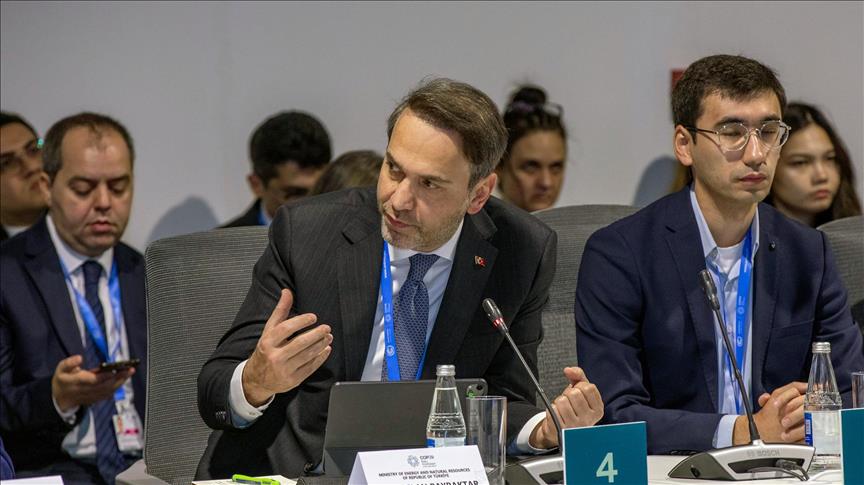Türkiye needs to collaborate closely with international financial institutions to advance its renewable energy and energy efficiency goals, said Turkish Energy and Natural Resources Minister Alparslan Bayraktar addressing a COP29 ministerial session on Tuesday.
Ankara aims to reduce energy consumption by 16% by 2030, leading to a 100 million-ton reduction in emissions, said Bayraktar in his speech addressing the ministerial session at COP29 in Azerbaijan’s capital Baku.
‘We need to bring investment and finance for this area. And that’s why I think we need to work closely with international financial institutions to have this project viable,’ Bayraktar added.
Noting that Türkiye has a ‘significant demand growth and high import dependency,’ Bayraktar said, ‘We have less than three decades to achieve carbon neutrality.’
To address these challenges, Türkiye’s long-term energy strategy prioritizes five key areas, he explained.
Thes einclude, ‘increasing our renewable energy capacity, enhancing energy efficiency across the economy, expanding nuclear power generation, using newly emerging technologies such as hydrogen, battery storage, CCUS (Carbon Capture, Utilisation and Storage) and also investing in critical minerals and rare earth metals for our energy future.’
Noting that Türkiye has set ‘very important and very ambitious targets’ on the renewable energy program for 2035, Bayraktar said, ‘We are aiming to quadruple our current install capacity on renewable on the wind and solar from 30 gigawatts to 120 gigawatts.’
‘We need to bring at least $80 billion of investment,’ he noted.
To achieve this, the country also focuses on energy efficiency targets.
This year’s COP29, which runs until Nov. 22, will be a platform to discuss a new climate financing target, the New Collective Quantified Goal (NCQG).
The COP29 began in Baku on Monday, bringing together world leaders, policymakers and activists with a renewed commitment to address climate crises.
Reporting by Firdevs Yuksel and Emre Gurkan Abay in Baku, Azerbaijan

